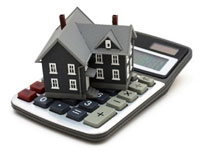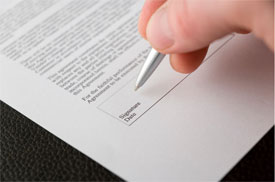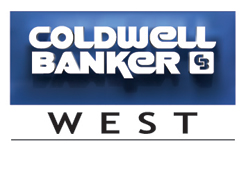Buyers Guide
Rent or Buy?
 With every rent check you write, you’re helping to build equity in your landlord’s property. That money could be going toward building equity in a home of your own. Today’s rates are low enough that your house payment could be lower than your rent payment!
With every rent check you write, you’re helping to build equity in your landlord’s property. That money could be going toward building equity in a home of your own. Today’s rates are low enough that your house payment could be lower than your rent payment!
There are many advantages to owning a home, including:
- Security
A feeling of security that comes from owning a home and the knowledge that your home is a safeguard against inflation. - Investment
Payments on your mortgage loan mean you are acquiring a major possession; instead of rent, you own more and more. The garden you plant, the permanent improvements you make – all enhance your way of living as well as the value of your home. - Tax Advantage
Your real estate taxes and the interest on your mortgage are deductible from your income tax. - Financial Independence
Most people start on the road to financial independence through home ownership. Your principal and interest payments remain the same for the full term of your mortgage while your rent usually goes up as the cost of living increases. - Environment
Your children grow up in the neighborhood of your choice. - Cash Equity
Better than a savings account, your home can appreciate to keep pace with inflation. - Satisfaction
Home ownership offers special advantages that make life more enjoyable – backyard barbecues, large family gatherings during holidays, a home workshop, a chance to enjoy your family’s companionship in the privacy of your own home.
How much home can you afford?
Our handy calculators can offer you valuable assistance in determining how much home you can afford and how much you can borrow.
How Much Can I Afford?
 Before you go out looking for a home, you can get an idea of what you can afford by using our Finance Tools. This handy tool will help you estimate how much mortgage you can handle.
Before you go out looking for a home, you can get an idea of what you can afford by using our Finance Tools. This handy tool will help you estimate how much mortgage you can handle.
Another thing to consider is your down payment amount. Think you can’t buy a house without a 10% or 20% down payment? Thanks to more lenient government guidelines and new mortgage products, many people can now get into a house for as little as 3% down-or less. There are even some special programs for first-time buyers that help with closing costs.
The Benefits of Equity
Equity is the principal part of your monthly payment that you can use as a down payment on a new home, or collateral for a home equity loan. You can use a home equity loan to finance home improvements, a child’s college tuition, or a new car.
Real estate is also a great way to keep a hedge against inflation. While some homes do appreciate in value more quickly than others, real estate usually keeps pace with inflation. In fact, homes in general have been appreciating at a steady 3% a year. (Your REALTOR can provide you with the housing appreciation rates in the areas in which you’re interested in buying.)
That Wonderful Thing Called A Tax Break
As a homeowner, when filing your taxes you can deduct the interest portion of your monthly payment-and that can mean big savings. You can deduct your property taxes, too.
So look at what your monthly mortgage payment will actually be, taking your tax breaks into consideration. You may find out it’s about the same as-or sometimes even less-than a rent payment!
With a 5% down payment, a $100,000 30-year mortgage loan at 8% interest (8.15% APR) requires a monthly principal and interest payment of $733.76. Assuming a 28% tax bracket and $150 for monthly property taxes, the after-tax monthly payment would be about $615! (This is only an example. Please consult with a tax advisor regarding your own tax situation and current tax laws.)
Pre-Qualification vs. Pre-Approval
Pre-qualification is just a guesstimate of how much you could afford. But with a pre-approval, it’s just that: getting your mortgage approved prior to going out and looking for a new home.
Your loan officer will show you which items you should bring to apply so neither of you will need to wait for various written income, asset and liability information. So you could get a loan decision in just days. And when you apply online , you can get your approval quickly! To meet with our Loan Officer at Homeservices Lending click here, Loans
Making an Offer
Time for nervous anticipation. You’ve found the home you want, and your Coldwell Banker West Sales Professional says you need to act fast. Yet you want to be as calm and objective as possible. The expertise A Coldwell Banker West Sales Professional can give you at negotiating time is priceless.
Negotiating The Buy
The expertise a Coldwell Banker West Sales Professional can give you at negotiating time is priceless. Be prepared for counter offers. Don’t let the pressure get to you. Remain patient, and let your Coldwell Banker West Sales Professional act as your liaison with the seller or the seller’s agent. You may need to be flexible on price, closing date, appliances and repairs.
Contingencies
Beware of putting contingencies in your purchase agreement. They weaken your offer. However, if you currently own a home, your offer may need to be contingent on it selling. Or, if you’re uncertain about the structural integrity of the home, you may want to have a home inspection contingency. Just be aware any contingency could take you out of the running if a non-contingent offer is presented.
Earnest Money
 Once your offer is accepted, be prepared to seal the deal with earnest money. Earnest money is usually a percentage of the home’s purchase price that indicates you’re serious about the purchase and indicates your good faith. It’s generally applied to the purchase price when you complete the purchase, but may be forfeited to the seller if you fail to complete the purchase. Contact your Sales Associate to determine the amount of earnest money you should be prepared to pay based on your target home price.
Once your offer is accepted, be prepared to seal the deal with earnest money. Earnest money is usually a percentage of the home’s purchase price that indicates you’re serious about the purchase and indicates your good faith. It’s generally applied to the purchase price when you complete the purchase, but may be forfeited to the seller if you fail to complete the purchase. Contact your Sales Associate to determine the amount of earnest money you should be prepared to pay based on your target home price.
Many first-time buyers are taken by surprise when it comes to earnest money, especially if they have to make a fast offer. Be sure to discuss with your REALTOR the appropriate amount of earnest money you should be prepared to pay based on the price range of properties you’re looking at. You should have this amount available in your checking account so you can write out an earnest money check on the day you sign your purchase agreement.



 This information is deemed reliable but not guaranteed. You should rely on this information only to decide whether or not to further investigate a particular property. BEFORE MAKING ANY OTHER DECISION, YOU SHOULD PERSONALLY INVESTIGATE THE FACTS (e.g. square footage and lot size) with the assistance of an appropriate professional. You may use this information only to identify properties you may be interested in investigating further. All uses except for personal, non-commercial use in accordance with the foregoing purpose are prohibited. Redistribution or copying of this information, any photographs or video tours is strictly prohibited. This information is derived from the Internet Data Exchange (IDX) service provided by Sandicor®. Displayed property listings may be held by a brokerage firm other than the broker and/or agent responsible for this display. The information and any photographs and video tours and the compilation from which they are derived is protected by copyright. Compilation © 2025 Sandicor®, Inc.
This information is deemed reliable but not guaranteed. You should rely on this information only to decide whether or not to further investigate a particular property. BEFORE MAKING ANY OTHER DECISION, YOU SHOULD PERSONALLY INVESTIGATE THE FACTS (e.g. square footage and lot size) with the assistance of an appropriate professional. You may use this information only to identify properties you may be interested in investigating further. All uses except for personal, non-commercial use in accordance with the foregoing purpose are prohibited. Redistribution or copying of this information, any photographs or video tours is strictly prohibited. This information is derived from the Internet Data Exchange (IDX) service provided by Sandicor®. Displayed property listings may be held by a brokerage firm other than the broker and/or agent responsible for this display. The information and any photographs and video tours and the compilation from which they are derived is protected by copyright. Compilation © 2025 Sandicor®, Inc.
Follow Us!